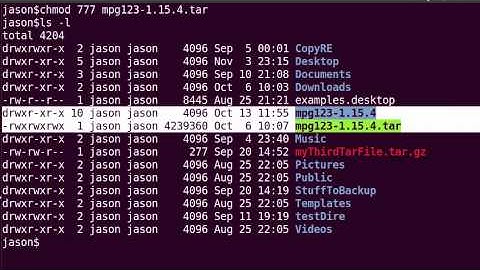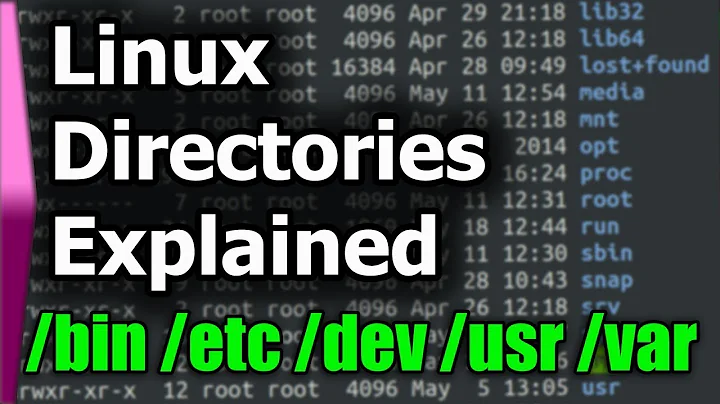file system uid and gid in linux
Who would have thought that this question would drag out such a collection of overconfident and underinformed responses!
The file system uid or fsuid is a Linux feature designed to help the NFS server implementation. It is an extra (non-POSIX) uid which is used only for file permission checks. For any process that doesn't call setfsuid (basically any process that's not trying to be an NFS server), the fsuid is the same as the effective uid.
There's even a man page for it, so excuse for claiming it doesn't exist.
Update: I was inspired to go find the origin of fsuid. When it was added in Linux 1.1.44, this comment was put above the new sys_setfsuid function:
+/*
+ * "setfsuid()" sets the fsuid - the uid used for filesystem checks. This
+ * is used for "access()" and for the NFS daemon (letting nfsd stay at
+ * whatever uid it wants to). It normally shadows "euid", except when
+ * explicitly set by setfsuid() or for access..
+ */
and this change was made in the comment above sys_access:
- * XXX we should use the real ids for checking _all_ components of the
- * path. Now we only use them for the final component of the path.
+ * access() needs to use the real uid/gid, not the effective uid/gid.
+ * We do this by temporarily setting fsuid/fsgid to the wanted values
So NFS was one of the original two purposes. The other was making access() work correctly. access() is used by setuid programs to determine whether the real user would have access to a file without the additional privileges of the setuid. Before 1.1.44 it was buggy. Since then, it's been using a temporary change of fsuid to do the work. Since the fsuid is restored before the access() system call returns, you'll never actually see the change from userspace.
Related videos on Youtube
Lukas
Updated on September 18, 2022Comments
-
Lukas almost 2 years
I came across a linux kernel tutorial and there they talked about 4 pairs of identifiers and one of them was file system uid and gid.
Could someone explain me what it is and how it is different from uid and gid?
-
 jlliagre almost 12 yearsThere is no such thing as file system uid/gid. Perhaps are you confusing with file/inode uid/gid. Can you point to a precise page in the tutorial ? In any case, an uid is an uid, regardless to what Unix object it applies to.
jlliagre almost 12 yearsThere is no such thing as file system uid/gid. Perhaps are you confusing with file/inode uid/gid. Can you point to a precise page in the tutorial ? In any case, an uid is an uid, regardless to what Unix object it applies to. -
 Admin almost 12 yearsits in processes subtopic of the tutorial
Admin almost 12 yearsits in processes subtopic of the tutorial -
 Gilles 'SO- stop being evil' almost 12 years@jlliagre There is such a thing. It's specific to Linux, and doesn't get much use. It's the fourth column in the UID and GID lines of
Gilles 'SO- stop being evil' almost 12 years@jlliagre There is such a thing. It's specific to Linux, and doesn't get much use. It's the fourth column in the UID and GID lines of/proc/$pid/status. -
 jlliagre almost 12 years@Gilles Indeed there is such a thing. The question was lacking context and my misinformed comment helped anyway figuring out what it was really about.
jlliagre almost 12 years@Gilles Indeed there is such a thing. The question was lacking context and my misinformed comment helped anyway figuring out what it was really about.
-
-
 Admin almost 12 yearscould you please elaborate on how it is useful..
Admin almost 12 yearscould you please elaborate on how it is useful.. -
Alan Curry almost 12 yearsAs I am not an NFS server author, I probably can't do better than what's in the man page.
-
phemmer almost 12 yearsIf you're going to call all the other answers 'overconfident underinformed responses', you might want to make sure yours isn't the same. This feature was not created for NFS. In fact the standard linux NFS server implementation doesn't use it at all as the NFS server is built into the kernel, not an application. The userspace NFS server is just an example of an application which uses it, but usage of the userspace NFS server is very rare.
-
Alan Curry almost 12 yearsThe state of the art in NFS may have moved on, but all historical information I can find indicates that the fsuid/fsgid was created for the sole purpose of supporting unfsd, and nothing else ever made use of it. And since the other answers denied the existence of the fsuid/fsgid I think I'm still pretty far ahead.
-
phemmer almost 12 yearsgood information to have. Digging up a 1.1.44 kernel must have been a chore :-)
-
Alan Curry almost 12 years@Patrick there are git repositories available with most of the history. I used one that covers 0.10 through 2.4.0-prerelease. It used to be git://git.kernel.org/pub/scm/linux/kernel/git/davej/history.git but that URL doesn't work anymore... googling "davej history.git" finds some working mirrors.




